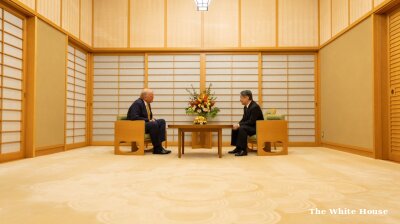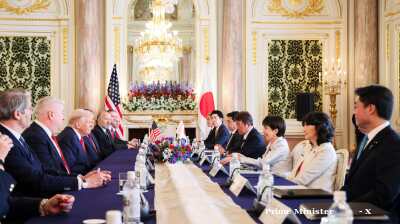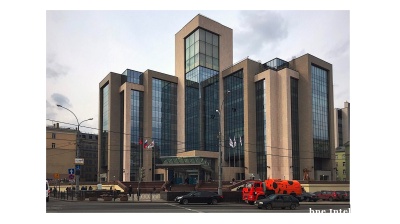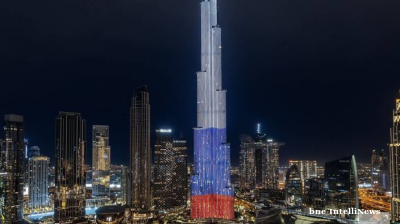Russia accused Azerbaijani troops of violating the 2020 Armenian-Azerbaijani ceasefire agreement on March 20 after they advanced into Nagorno-Karabakh territory.
According to the Russian Defence Ministry, the Azerbaijani forces occupied a hill near the Lachin corridor connecting the ethnic Armenian area of Karabakh to Armenia, the area where Azerbaijani protestors have been blocking the main road for over three months. This action violated a key term of the Russian-brokered ceasefire that ended the six-week war in Karabakh, which broke away from Azerbaijan in the early 1990s.
The Russian peacekeepers, who have been deployed in the region since the ceasefire, demanded that Azerbaijan withdraw its troops to their previously occupied positions. The Azerbaijani Defence Ministry claimed that its troops took necessary measures to stop Armenia from sending weapons and military personnel through dirt roads parallel to the blocked section of the Lachin corridor. The Armenian and Karabakh leaderships have denied these allegations.
The Azerbaijani forces crossed the "line of contact" near the site of a March 5 shootout that left three Karabakh police officers and two Azerbaijani soldiers dead. The Armenian side claimed that an Azerbaijani sabotage group ambushed a vehicle carrying Karabakh police officers before being repelled by Karabakh soldiers deployed nearby. The Russian peacekeepers confirmed that version of events. However, Baku claimed its soldiers came under fire as they tried to check the police van allegedly smuggling weapons from Armenia.
Tensions in the conflict have risen significantly since then, with the Armenian government repeatedly accusing Baku of preparing the ground for another attack on Armenia and Karabakh. Meanwhile, authorities in Nagorno-Karabakh have accused the Azerbaijani military of firing at Karabakh Armenian villagers who were cultivating land in their communities.
The interior ministry in Stepanakert reported that a group of residents of Machkalashen, a village in Karabakh's Martuni district, came under small arms fire from nearby Azerbaijani army positions as they worked in local vineyards on Thursday and Friday morning. Although the gunfire injured no one, the farmers had to stop their work. The Azerbaijani troops opened fire despite the presence of Russian peacekeepers protecting the farmers.
Similar incidents were reported from another Martuni village, Chartar, earlier last week. Local farmers have requested the Russian peacekeeping forces help ensure their security.
The reported incidents highlight tensions in the conflict zone more than three months after Azerbaijan blocked Karabakh's sole road to Armenia. The Azerbaijani military has repeatedly accused Armenia this month of transporting military personnel and weapons to Karabakh and threatened to take "resolute" actions to stop the alleged shipments. Yerevan has strongly denied the allegations, saying that Baku may be preparing the ground for launching offensive military operations in Karabakh or along the Armenian-Azerbaijani border.
In March, the Azerbaijani Defence Ministry released footage of a Russian armoured vehicle escorting a convoy of trucks along a dirt road running parallel to a section of the Lachin corridor blocked by Azerbaijani government-backed protesters. The ministry portrayed the video as further proof of Baku's allegations. However, the Karabakh Interior Ministry insisted that these and other vehicles using the barely passable road transport only civilians and "humanitarian cargo".
Foreign Minister Ararat Mirzoyan stated last week that Armenia and Azerbaijan are still at odds over important terms of a bilateral peace treaty that they have been discussing. The two sides have submitted written proposals regarding the treaty in recent months, but the details have yet to be made public. According to Mirzoyan, there have been discussions and some compromise language, but major issues of primary importance remain unresolved.
Parliament speaker Alen Simonian also acknowledged last month that Yerevan and Baku still disagree on three or four elements of the proposed treaty without disclosing them. Baku insists that the peace accord should be based on five principles, including mutual recognition of each other's territorial integrity, including Armenian recognition of Azerbaijani sovereignty over Karabakh.
Armenian leaders have been vague about such recognition in their public statements, emphasising the "rights and security" of Karabakh's ethnic Armenian population. Armen Grigorian, the secretary of Armenia's Security Council, recently said that Yerevan is seeking relevant security guarantees for the Karabakh Armenians, which could involve establishing a "demilitarised zone" around Karabakh or an "international presence" in the Armenian-populated territory.


.jpeg)




